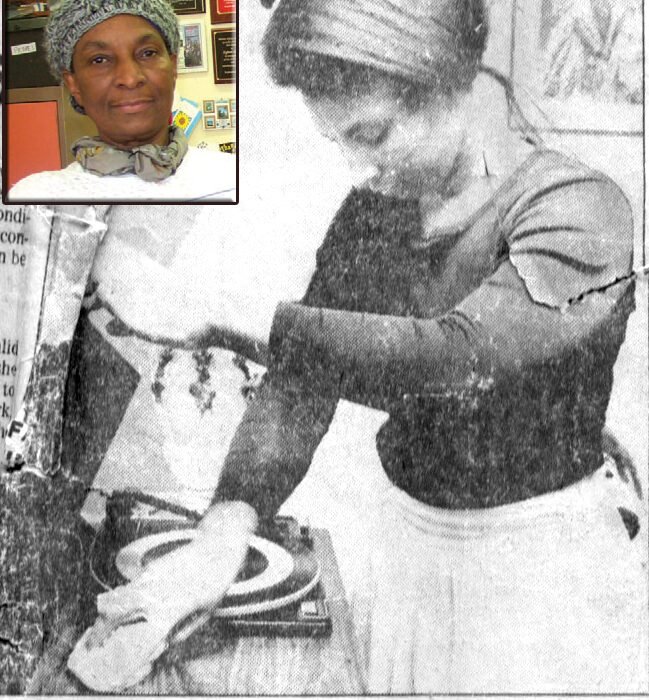Beverly Deroy remembers the tough days
Egbert Gaye
Part of the foundation of our community rests on the shoulders of the thousands of women who made their way here to Montreal and other big Canadians cities as domestics from across the Caribbean.
They came in large numbers in the 1960s, 70s and 80s, and worked hard to pave the way for others to follow, many of them bringing husbands and relatives helping to shape the landscape of our community, many sometimes under abusive conditions.
When Beverly Deroy left her native Jamaica in 1976 to come to Montreal, with the promise of a salary of $75 a week from a nice family, she was enthusiastic about the prospects of her future in Canada. But her enthusiasm dissipated quickly, when she realized they lied to her, and her pay was only $30 a week.
“I went through a hard time coming to Canada because the people I came to work with treated me badly, and I had no one here, but God was on my side.”
In trying to better her situation, Deroy helped to secure better working conditions for many other domestics and ensured that they earned a minimum of $75 dollars a week.
Her story was captured in a full page spread in the Montreal Gazette on Saturday, December 15, 1979 in an article titled “Cleaning up can be dirty business.”
It tells of a frustrated Deroy working more than 15 hours a week and eating mostly leftovers late into the night for a meager $30 a week.
At the time she was one of about 15,000 domestic workers in Quebec working without the protection of government regulations that made them easy prey to unscrupulous employers who exploited and abused them.
The story also told of other workers who were continuously harassed and systemically ripped off. One of them from St. Lucia said she was promised $75 a week, but when she reached here was given a measly $10 a week.
When Deroy spoke out about her situation, her employer threw her out of the house without a coat or any of her personal belongings, and she was forced to seek refuge at a neighbor’s home.
At the time she had a daughter and grandmother in Jamaica depending on her, so she willed herself to “tough it out” and eventually found another job that paid her $75 week.
She also connected with Korkor Amartiefo, the founder of the Quebec Homeworkers Association, and became active in the organization, helping other domestics who were faced with conditions similar to what she experienced.
Just around the time that Deroy became active in Amartiefo’s organization, in1979, the Quebec government passed Bill 126 that provided a minimum wage of $3.47 per hour for housekeepers, cleaners, and maids. The legislation also called for fixed working conditions, statutory holidays and paid vacation for them.
And as she continued to remember those tough days when she had “nothing to eat or drink,” Deroy says it drives her to try to help others who are currently caught in the throes of hardship.
As a member of the small congregation at the Deliverance Church Of God 7th Day in NDG, she is continuously involved in helping those who are living without.
They regularly feed the homeless on the streets of downtown Montreal, and give to charities such as the Old Brewery Mission and the NDG Food Bank.
Today, Deroy looks back with pride at the efforts that she and others invested in helping to lift the working conditions and living standards of domestics across the province.
Info: DeliveranceChurchofGod7thDay.net (514) 736-0650.














